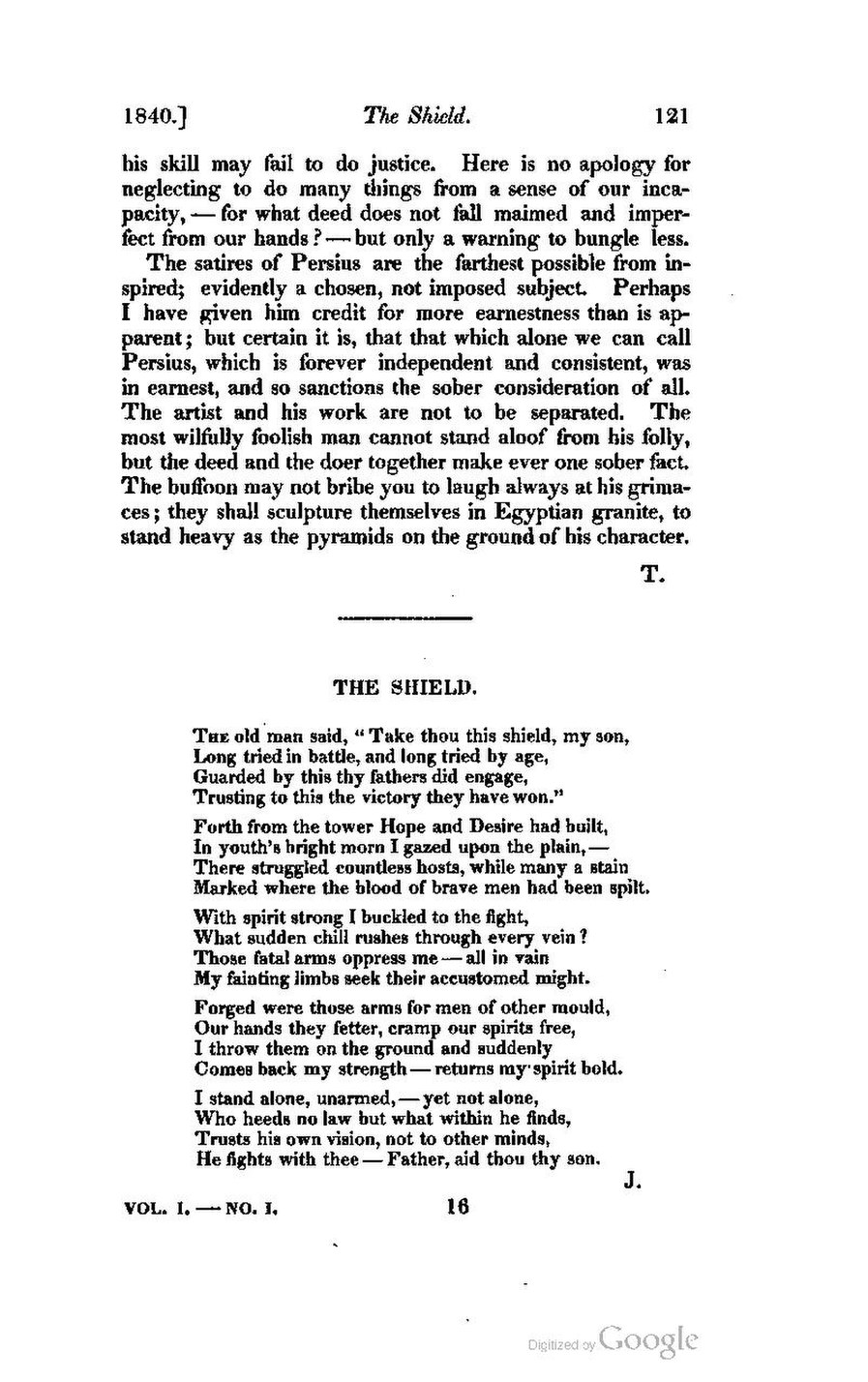his skill may fail to do justice. Here is no apology for neglecting to do many things from a sense of our incapacity,—for what deed does not fall maimed and imperfect from our hands?—but only a warning to bungle less.
The satires of Persius are the farthest possible from inspired; evidently a chosen, not imposed subject. Perhaps I have given him credit for more earnestness than is apparent; but certain it is, that that which alone we can call Persius, which is forever independent and consistent, was in earnest, and so sanctions the sober consideration of all. The artist and his work are not to be separated. The most wilfully foolish man cannot stand aloof from his folly, but the deed and the doer together make ever one sober fact. The buffoon may not bribe you to laugh always at his grimaces; they shall sculpture themselves in Egyptian granite, to stand heavy as the pyramids on the ground of his character.
THE SHIELD.
The old man said, “Take thou this shield, my son,
Long tried in battle, and long tried by age,
Guarded by this thy fathers did engage,
Trusting to this the victory they have won.”
Forth from the tower Hope and Desire had built,
In youth's bright morn I gazed upon the plain,—
There struggled countless hosts, while many a stain
Marked where the blood of brave men had been spilt.
With spirit strong I buckled to the fight,
What sudden chill rushes through every vein?
Those fatal arms oppress me—all in vain
My fainting limbs seek their accustomed might.
Forged were those arms for men of other mould,
Our hands they fetter, cramp our spirits free,
I throw them on the ground and suddenly
Comes back my strength—returns my spirit bold.
I stand alone, unarmed,—yet not alone,
Who heeds no law but what within he finds,
Trusts his own vision, not to other minds,
He fights with thee — Father, aid thou thy son.
16
